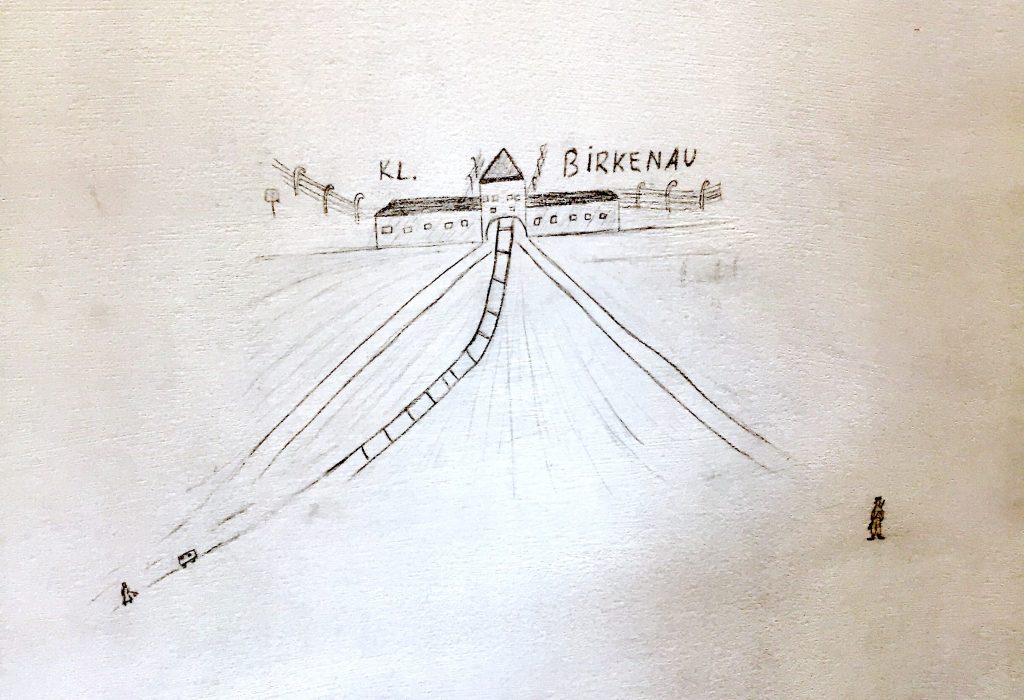
I discuss the Holocaust in this piece, at some points in detail. I choose not to shy away from the details so as to paint a more vivid picture, but readers are advised to proceed with that knowledge.
This article is in response to a Holocaust joke made in a “Campus Presswatch” review of an article I wrote as well as another article, published in the Binghamton Review. For context, the writer of said joke has been reported to be Jewish. My argument is that this is not an excuse or a justification. Before I continue, I’d love to take this opportunity to publicly thank the Jewish community at Binghamton University, Chabad, Hillel at Binghamton, Jewish Greek organizations who spoke out, members of the Student Association (SA) who stood up for us, Pipe Dream for having my back and everyone else who also spoke out. I’d also like to say thanks to Spencer Haynes for initiating conversation within the Binghamton Review, despite his lack of involvement with the article, as well as editor-in-chief of the Binghamton Review, Tommy Gagliano for reaching out to me following this. From the very beginning, I knew I was not fighting this battle alone. I am so insanely grateful for the people that checked up on me and made their voices heard about this — it was truly overwhelming.
Growing up, my school had a memorial ceremony on Holocaust Remembrance Day every year. We usually had survivors come in and speak to us about what they went through, adjusting for our ages as we got older. The older I got, the fewer and more far between the survivors were, unfortunately. Today, there are so few who are alive and well to tell their stories. On top of that, we also learned about the Holocaust all year long.
One summer in high school, I participated in a program that took me to important Holocaust sites in Eastern Europe. I could go on and on for pages about the things I saw and it wouldn’t be enough. I couldn’t tell you enough about what I saw, and more than that, it wouldn’t come anywhere near what was experienced by the victims of these atrocities.
In the aftermath of this joke being published, I received an email from Tommy Gagliano, the outgoing editor-in-chief of the Binghamton Review. He wrote to me about how he was sorry, and he told me that he didn’t really understand it before and still doesn’t now. I’ll be clear: he’s not expected to understand. No one is. More than that, no one, besides the people who went through it, can understand. After my visit to these places, I still don’t understand it, and neither do the grandchildren or even children of survivors. It is so much larger than anything that anyone can grasp, so he is right to admit that he doesn’t get it.
I’m really proud to have had the educational opportunities that I’ve had throughout my life, as they prepared me for what happened earlier last week. They’ve honestly prepared me for way worse than what happened last week, moments that are unfortunately not lacking in this world. Holocaust denial is a widespread problem, so the fact that this was ignorance is almost indicative of something less malicious and worrying, in my opinion — not to take away from what happened, because it was really painful for me and my community. We need the safe space that BU has historically offered Jews.
I’d like to just discuss briefly why we cannot normalize these jokes being made, even by Jews. The 21st century American Jewish experience is completely different from that of Jews under Nazi occupation and, like I said, we have such a small understanding of everything that happened. It’s impossible to reach a point of understanding that allows you to make a joke about it. On top of that, it’s a gateway to normalizing all people making these kinds of jokes as well. Furthermore, the article in the Binghamton Review did not list the author’s name in the byline, so I didn’t know that it was a Jewish student who made this joke and not an anti-Semite, which made this event all the more scary and serious.
Now, knowing that this was written by a Jewish student, I hope students are not any less concerned about anti-Semitism and Holocaust humor. This shouldn’t be the “Oh, I guess it’s fine” signal — it should be the “All the more reason why this should have never happened” signal.
I want it to be known that although I advocate for the Binghamton Review to learn why their actions were wrong, I do not advocate for censorship. I respect their right to criticize my words, drawing the line at this joke. Ultimately, this was an opportunity for me to speak about something I am so passionate about, and honestly, I don’t talk about it enough. I don’t read enough material to educate myself further. I’m not sure why.
I think that I’ve sort of shied away from the topic of the Holocaust because I wanted to repress those feelings I had back in Europe. I don’t like to think about the fact that my male counterparts on the trip were told to remove their kippot, a head covering worn by Jews, in Europe, because even after all this time since the Holocaust has passed, anti-Semitism in Europe is still alive and well. I hate remembering what it felt like to stand in a room and look up to realize there were gas chambers where my feet were planted. My body is untouched, but my people who stood in this exact same place were killed, mercilessly, in front of their children and parents and siblings, for a reason that also applies to me: they were Jewish. I get the chills thinking about my people’s history in these places, and although I’m not thankful for the reason that it is relevant, I should take the opportunity that I have as someone who has seen these things to talk about it.
Education on this is so crucial because not knowing the severity of this is what leads people to publish jokes like these. I truly believe that what happened was due to a lack of knowledge and understanding. If Tommy had known what he knows now about the Holocaust and the sensitivity people have about it, he would not have allowed that joke to be published. I think he is a good man with good intentions from the impression I got from our brief exchange. Because of that, I think he deserves the benefit of the doubt that he would never have published that joke knowing what it would have done.
Moving forward, I hope people carry themselves with a bit more sensitivity. I hope the people who defaulted to calling others “snowflakes” instead of thinking about the implications of their words and actions rethink this habit. No one’s expected to learn how not to offend others immediately, but just apologize. It’s really not hard. It’s not hard to acknowledge that someone’s words or actions hurt someone else, even if that wasn’t the intention, even if they didn’t think many people would be affected, it’s just what you should do. As for the next steps, let’s all just think twice before making certain jokes, before engaging in social media fights, before doubling down on a mistake instead of apologizing. Let’s just be a little more sensitive to others. We don’t know what will upset people and why, so let’s not act like we do.
Ariel Wajnrajch is a sophomore majoring in psychology.



